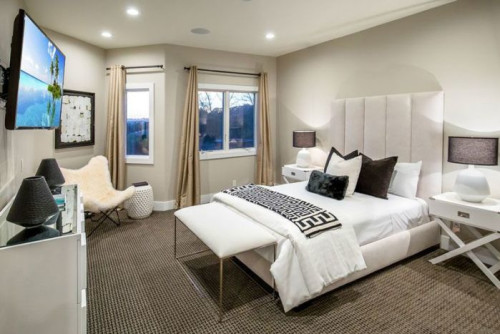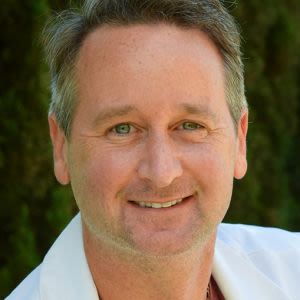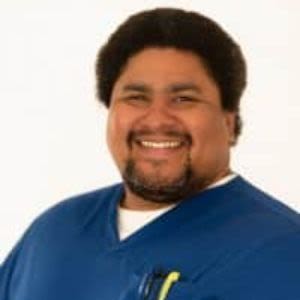








Rise in Malibu
Verified Center
This provider's information has been quality-checked by Recovery.com's Research Team for accuracy and completeness, including center verification through appropriate third-party organizations.
Treatment Focus
This center treats substance use disorders and co-occurring mental health conditions. Your treatment plan addresses each condition at once with personalized, compassionate care for comprehensive healing.
Primary Level of Care
Offering intensive care with 24/7 monitoring, residential treatment is typically 30 days and can cover multiple levels of care. Length can range from 14 to 90 days typically.
Treatment Focus
This center treats substance use disorders and co-occurring mental health conditions. Your treatment plan addresses each condition at once with personalized, compassionate care for comprehensive healing.
Primary Level of Care
Offering intensive care with 24/7 monitoring, residential treatment is typically 30 days and can cover multiple levels of care. Length can range from 14 to 90 days typically.
Provider's Policy
Most PPO Insurance will help cover treatment. Rise in Malibu works with most PPO Insurance carriers which will help cover most or all of the costs associated with our World Class Treatment Center.
Rise in Malibu
Rise in Malibu
About Rise in Malibu
Rise in Malibu is a luxury treatment facility that’s mission is to guide those with addiction to recovery. In the midst of a substance use epidemic, a few dedicated minds opened a program that treats addiction as the mental, spiritual, and emotional malady they believe it truly is. When it came time to build Rise in Malibu’s treatment center team, they knew they needed the best of the best. Rise in Malibu's dedicated clinicians and staff, experienced in traditional, clinical, and holistic modalities, have been on the front lines of addiction treatment, continuing to play an integral role in numerous substance abuse recoveries within their beautiful facility.
Top Professionals and Evidence-Based Therapies
Rise in Malibu has assembled top professionals from around the country who are passionate about treating addiction. Their doctorate and masters-level team includes medical doctors who supervise detox, a psychiatrist and addiction specialist, therapists, nurses, group facilitators, case managers, and holistic practitioners. Rise in Malibu assesses clients’ mental, physical, and spiritual needs to formulate the best treatment plan for each client. Therapies like cognitive behavioral therapy (CBT), dialectical behavioral therapy (DBT), eye movement desensitization and reprocessing (EMDR), and family therapy offer multiple routes to healing. Their innovative treatment program combines modern, holistic, and traditional methods to treat clients’ mind, body, and spirit.
Comprehensive, Lasting Care
Rise in Malibu combines aspects of evidence-based, holistic, and community therapies to create treatment plans that are truly unique. Clients receive highly tailored care, with weekly sessions with their addiction psychiatrist, addiction medicine specialist, and 3 weekly individual therapy sessions. Their personalized treatment offers an effective, relevant, and impactful recovery experience. Rise in Malibu sets clients up with a community recovery group during their stay, with 12-Step and non-12-Step options available.
Recover in a Warm And Luxurious Coastal Location
Rise in Malibu has a prized California-coast location, offering breathtaking views of the ocean and a private, modern home to recoup and heal. They provide beach access, a pool, and private rooms. Rise in Malibu’s chef and kitchen team prepare nutritious meals catered to dietary restrictions. Weekly off-site experiential therapy rotates through ropes courses, hiking, ocean activities, and animal therapy. Their unique Continue Rising Aftercare Plan keeps clients connected to care with defined housing plans, arrangements for outpatient care, continued peer recovery meetings, and case management.

Highlights from the Center
Highlights
These highlights are provided by and paid for by the center.
1-on-1 Counseling
Therapeutic Location
Private Rooms Only
Doctor Level Therapists
Center Overview
Treatment Focus
This center treats substance use disorders and co-occurring mental health conditions. Your treatment plan addresses each condition at once with personalized, compassionate care for comprehensive healing.
Joint Commission Accredited
The Joint Commission accreditation is a voluntary, objective process that evaluates and accredits healthcare organizations (like treatment centers) based on performance standards designed to improve quality and safety for patients. To be accredited means the treatment center has been found to meet the Commission's standards for quality and safety in patient care.

Rise in Malibu
Insurance Accepted
Cash Pay Rates
Estimated Cash Pay Rate
Center pricing can vary based on program and length of stay. Contact the center for more information. Recovery.com strives for price transparency so you can make an informed decision.




Recovery.com Verified Listing
Recovery.com verified that the name, location, contact information and license to operate for this treatment provider are valid and up-to-date.

Joint Commission Accredited

Licensed by California DHCS
Recovery.com is an independent, third-party mental health resource. Verification does not imply endorsement and does not guarantee the quality of treatment services.
Meet Your Care Team

Dr. Mark Stahlhuth
Clinical Director
Ph.D

Dr. Damon Raskin
Detox Specialist & Internist
M.D.

Dr. Ashley Benjamin
Psychiatrist & Addiction Specialist
M.D.

Josh Clark
Nursing Supervisor
LVN

Berkeley Davis
Admissions Coordinator

Emily Broms
Holistic Therapist/Yoga Instructor

Ron Finnerman
Founder

William Schofield
Aftercare Coordinator
CADC-II

Cat Macary
Massage Therapist

Canaan Snook
Personal Trainer

Spencer Scotti
Resident Counselor/ Group Facilitator
CATC I

Briana Perlson
Executive Assistant/Case Management
ACSW, EMDR Trained

Lori Jasinski
Admissions Coordinator

James Mcninch
Case Manager/ EMDR
ACSW

Angie Vasquez
Support Staff

Michael Clark
Chef

Nam Ngo
Resident Support Staff
Your Care Options
Specializations
Alcohol
Using alcohol as a coping mechanism, or drinking excessively throughout the week, signals an alcohol use disorder.
Detox
Detox fully and safely removes toxic substances from the body, allowing the next steps in treatment to begin with a clean slate.
Executives
Executive treatment programs typically directly support the needs of people who manage businesses and may provide flexible schedules and office space to allow work during treatment.
Holistic
A non-medicinal, wellness-focused approach that aims to align the mind, body, and spirit for deep and lasting healing.
Non 12 Step
Non-12-Step philosophies veer from the spiritual focus of the 12-Steps and instead treat the disease of addiction with holistic or secular modalities.
Professionals
Busy, high-ranking professionals get the personalized treatment they need with greater accommodations for work, privacy, and outside communication.
Trauma
Some traumatic events are so disturbing that they cause long-term mental health problems. Those ongoing issues can also be referred to as "trauma."
Who We Treat
Executives
Executive treatment programs typically directly support the needs of people who manage businesses and may provide flexible schedules and office space to allow work during treatment.
Professionals
Busy, high-ranking professionals get the personalized treatment they need with greater accommodations for work, privacy, and outside communication.
Treatment Services
Day Treatment
In a PHP, patients live at home but follow an intensive schedule of treatment. Most programs require you to be on-site for about 40 hours per week.
Outpatient
During outpatient rehab, patients attend a structured treatment program while continuing to live at home.
Residential
In a residential rehab program, patients live onsite, with access to daily treatment and 24-hour care. An average stay is 30-90 days.
Approaches
Evidence-Based
A combination of scientifically rooted therapies and treatments make up evidence-based care, defined by their measured and proven results.
Holistic
A non-medicinal, wellness-focused approach that aims to align the mind, body, and spirit for deep and lasting healing.
Non 12 Step
Non-12-Step philosophies veer from the spiritual focus of the 12-Steps and instead treat the disease of addiction with holistic or secular modalities.
Twelve Step
Incorporating spirituality, community, and responsibility, 12-Step philosophies prioritize the guidance of a Higher Power and a continuation of 12-Step practices.
Therapies
1-on-1 Counseling
Patient and therapist meet 1-on-1 to work through difficult emotions and behavioral challenges in a personal, private setting.
Mindfulness Therapy
This ancient practice can be mental, emotional, and even spiritual. In meditation, you focus your attention on the present moment without judgement.
Adventure Therapy
This experiential approach uses the physical and emotional challenges of outdoor activities as tools for personal growth.
Animal Therapy
Animals can inspire trust and self-worth. In this experiential therapy, guided interactions are used to improve social skills and emotion regulation.
Art Therapy
Visual art invites patients to examine the emotions within their work, focusing on the process of creativity and its gentle therapeutic power.
Equine Therapy
Guided interactions with trained horses, their handler, and a therapist can help patients improve their self-esteem, trust, empathy, and social skills.
Experiential Therapy
With this approach, patients heal by doing. Therapists help patients process difficult emotions to speak, using guided activities like art or dance.
Eye Movement Therapy (EMDR)
Lateral, guided eye movements help reduce the emotional reactions of retelling and reprocessing trauma, allowing intense feelings to dissipate.
Conditions We Treat
Anxiety
Anxiety is a common mental health condition that can include excessive worry, panic attacks, physical tension, and increased blood pressure.
Bipolar
This mental health condition is characterized by extreme mood swings between depression, mania, and remission.
Post Traumatic Stress Disorder
PTSD is a long-term mental health issue caused by a disturbing event or events. Symptoms include anxiety, dissociation, flashbacks, and intrusive thoughts.
Trauma
Some traumatic events are so disturbing that they cause long-term mental health problems. Those ongoing issues can also be referred to as "trauma."
Substances We Treat
Alcohol
Using alcohol as a coping mechanism, or drinking excessively throughout the week, signals an alcohol use disorder.
Benzodiazepines
Benzodiazepines are prescribed to treat anxiety and sleep issues. They are highly habit forming, and their abuse can cause mood changes and poor judgement.
Co-Occurring Disorders
A person with multiple mental health diagnoses, such as addiction and depression, has co-occurring disorders also called dual diagnosis.
Cocaine
Cocaine is a stimulant with euphoric effects. Agitation, muscle ticks, psychosis, and heart issues are common symptoms of cocaine abuse.
Drug Addiction
Drug addiction is the excessive and repetitive use of substances, despite harmful consequences to a person's life, health, and relationships.
Heroin
Heroin is a highly addictive and illegal opioid. It can cause insomnia, collapsed veins, heart issues, and additional mental health issues.
Methamphetamine
Methamphetamine, or meth, increases energy, agitation, and paranoia. Long-term use can result in severe physical and mental health issues.
Opioids
Opioids produce pain-relief and euphoria, which can lead to addiction. This class of drugs includes prescribed medication and the illegal drug heroin.
Languages
Aftercare
Care Designed for Your Needs
Personal Amenities
Amenities
Special Considerations
Healthy Meals are provided
Great food meets great treatment, with providers serving healthy meals to restore nutrition, wellbeing, and health.
Activities
Yoga
Yoga is both a physical and spiritual practice. It includes a flow of movement, breathing techniques, and meditation.
Off-Site Activities
Off-Site Amenities
Learn More About the Center
More About Rise in Malibu
Learn more about Rise in Malibu, including their mission and the talented staff on their team.
Testimonials
Read testimonials from former clients of Rise in Malibu.
Tour Rise in Malibu
See more of Rise in Malibu’s facility and the luxury amenities they offer–and their ocean view.
Verify Insurance Coverage
Use Rise in Malibu’s free tool to verify insurance coverage and see how slight out-of-pocket expenses may be.
What people are saying
Treatment
4.8
Accommodations
4.8
Food & Nutrition
4.6
Value
4.7
Pros
- Beautiful Location (4)
- Friendly & Competent Staff (3)
- Luxurious Accommodations (2)
- Excellent & Effective Treatment Programming (2)
Eric
Treatment in 2024 • (30 days) • Reviewed 07/23/24
Former Client
•Hollywood
J.E.
Treatment in 2024 • (30 days) • Reviewed 07/10/24
Loved One of a Former Client
•USA
Chris
Treatment in 2024 • (30 days) • Reviewed 07/08/24
Loved One of a Former Client
Lisa
Reviewed 06/03/21
Review from Rehabs.com
janis
Reviewed 05/29/21
Review from Rehabs.com





